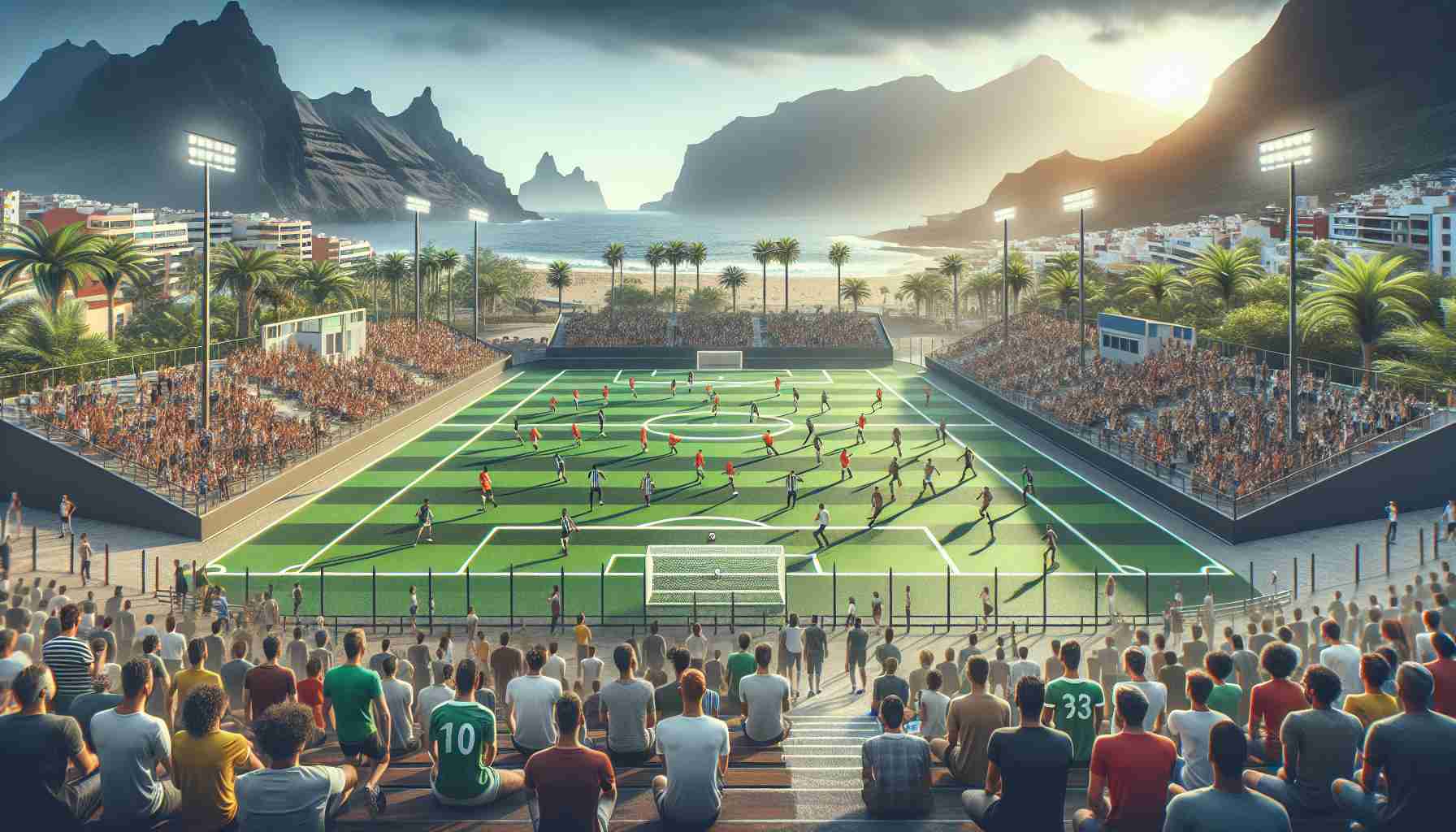
Revolutionizing Football: A New Era for Gran Canaria
Gran Canaria’s Rise: The upcoming World Cup in 2030 is set to propel Gran Canaria’s football club to new heights with the unveiling of a cutting-edge stadium. The Canary Island team’s success in recent years, marked by consistent presence in the elite division, has not only elevated their financial standing but also showcased their strong management under President Miguel Ángel Ramírez.
Talent Development and Identity: Gran Canaria’s success is not solely reliant on financial prowess. The club’s ability to nurture local talent like Viera, Vitolo, and more recently Pedri and Coco, while maintaining a strong sense of identity, sets them apart from their rivals. The recent repatriation of players like Ángel and Maikel Mesa highlights the loyalty and connection players feel towards the yellow emblem.
Innovative Social Engagement: Breaking records with a massive base of 25,000 loyal members and an extensive waiting list demonstrates Gran Canaria’s commitment to engaging with fans. Innovative campaigns like the launch of Pío Pío beer and the unique marketing of club-themed merchandise have further solidified their bond with supporters.
Modernization Divide: The stark contrast between Gran Canaria’s modern facilities, including plans for a state-of-the-art 40,000-seater stadium, and Tenerife’s struggle to revamp their outdated venue underscores the differing trajectories of the two clubs. As Gran Canaria forges ahead with progress, Tenerife faces managerial crises and performance struggles that paint a bleak picture for the club.
In conclusion, the football landscape in the Canary Islands is undergoing a significant shift, with Gran Canaria emerging as a powerhouse poised for continued success and growth, while Tenerife grapples with internal turmoil and on-field challenges. The future shines bright for Gran Canaria as they lead the charge into a new era of football excellence.
Revolutionizing Football in Gran Canaria: Embracing Change and Challenges
Expansion Plans and Infrastructure: Gran Canaria’s football club is not only focused on elevating its performance on the field but also on revolutionizing its infrastructure. In addition to the cutting-edge stadium planned for the upcoming World Cup in 2030, there are discussions about expanding training facilities to enhance player development further. The club’s investment in modernizing its infrastructure reflects a commitment to long-term success and sustainability.
Global Partnerships and Exposure: As Gran Canaria aims to reach new heights, questions arise regarding potential collaborations with international football clubs or leagues. How will partnerships with global entities impact the club’s brand and exposure on an international scale? Exploring these opportunities can unlock new revenue streams and elevate the club’s reputation beyond national borders.
Fan Engagement in the Digital Age: While Gran Canaria boasts a loyal fan base and innovative social engagement initiatives, how will the club harness digital platforms to connect with fans worldwide? Leveraging technology and digital marketing strategies can expand the reach of the club’s message and create a more inclusive fan community. However, balancing traditional fan experiences with modern digital engagement poses a challenge in maintaining authenticity while embracing innovation.
Youth Development and Sustainable Success: Gran Canaria’s focus on nurturing local talent has been a key factor in its recent success. As the club continues to prioritize youth development, what strategies are in place to ensure sustainable success beyond individual player achievements? Sustaining a pipeline of talented young players while navigating the competitive landscape of modern football presents a complex challenge for the club’s management and coaching staff.
Advantages and Disadvantages of Rapid Growth: The rapid evolution of Gran Canaria’s football club brings forth both opportunities and risks. Advantages include enhanced revenue streams, increased global visibility, and strengthened competitiveness. However, rapid growth may also strain resources, lead to potential conflicts in team culture, or impact the club’s community identity. Balancing the benefits of expansion with the potential drawbacks is crucial in navigating the club’s journey towards revolutionizing football in Gran Canaria.
As Gran Canaria embraces a new era of football excellence, it faces pivotal questions and challenges that will shape its trajectory in the global football landscape. By addressing key considerations related to expansion, fan engagement, youth development, and sustainable growth, the club can position itself for sustained success while staying true to its roots and identity.
For more insights on the evolution of football clubs and strategies for long-term success, explore resources from FIFA’s official website.